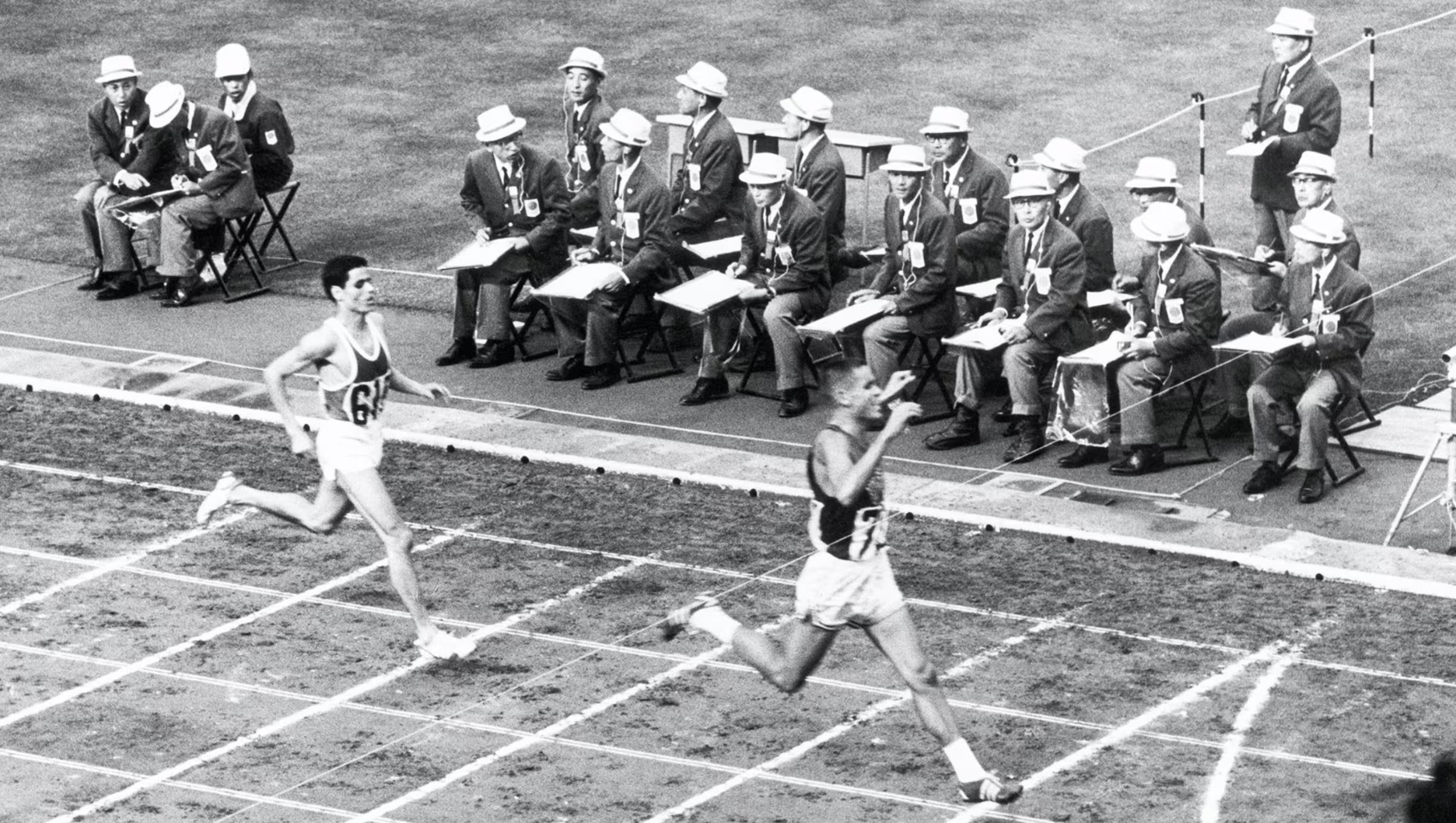
- Details
- By Levi Rickert
This Day in History: On October 14, 1964, history was made on the track in Tokyo, Japan, as Billy Mills, a relatively unknown American runner, stunned the world by winning the gold medal in the 10,000-meter race at the Summer Olympics. His victory remains one of the most remarkable upsets in Olympic history and a testament to determination, resilience, and the human spirit.
Billy Mills, a member of the Oglala Lakota Nation from the Pine Ridge Reservation in South Dakota, entered the 1964 Olympics as a long shot. While he had shown promise as a distance runner at the University of Kansas, no one expected him to challenge the dominant runners from Europe and Africa, who had been training rigorously for years and were considered favorites to medal.
The 10,000-meter final on October 14 was intense from the start. The lead changed hands frequently as Mills stayed close to the front, conserving energy while carefully observing his competitors. With less than 400 meters to go, Mills made a move that shocked everyone: he surged past the leading pack with a speed that seemed almost impossible after running 24 grueling laps. In a thrilling final stretch, he crossed the finish line in 28 minutes, 24.4 seconds, ahead of Ethiopia’s Mamo Wolde and Russia’s Pyotr Bolotnikov.
WATCH THE VIDEO:
Mills’ victory was groundbreaking for several reasons. He remains the only American to have ever won the Olympic gold in the 10,000 meters, a feat that highlighted both his physical talent and strategic racing intelligence. Beyond the track, Mills’ win carried profound cultural significance. As a Native American athlete succeeding on the world stage, he became an enduring symbol of pride and inspiration for Indigenous communities across the United States and around the world.
Following his Olympic triumph, Mills dedicated his life to giving back, founding the nonprofit Running Strong for American Indian Youth, which supports programs for Native communities. His legacy is not only defined by a single race but also by his lifelong commitment to promoting opportunity, education, and health for Native youth.
October 14, 1964, remains etched in history as the day Billy Mills defied the odds, proving that heart, courage, and determination can overcome even the most formidable challenges. His gold medal run continues to inspire athletes and admirers more than half a century later, reminding Native Americans and non-Natives that greatness often comes from unexpected places.
More Stories Like This
Native News Weekly (August 25, 2024): D.C. BriefsUS Presidents in Their Own Words Concerning American Indians
2026 Native American 40 Under 40 Class Announced
Monday Morning: (January 5, 2026): Articles You May Have Missed This Past Weekend
Native News Weekly (January 4, 2026): D.C. Briefs
Help us defend tribal sovereignty.
At Native News Online, our mission is rooted in telling the stories that strengthen sovereignty and uplift Indigenous voices — not just at year’s end, but every single day.
Because of your generosity last year, we were able to keep our reporters on the ground in tribal communities, at national gatherings and in the halls of Congress — covering the issues that matter most to Indian Country: sovereignty, culture, education, health and economic opportunity.
That support sustained us through a tough year in 2025. Now, as we look to the year ahead, we need your help right now to ensure warrior journalism remains strong — reporting that defends tribal sovereignty, amplifies Native truth, and holds power accountable.
 The stakes couldn't be higher. Your support keeps Native voices heard, Native stories told and Native sovereignty defended.
The stakes couldn't be higher. Your support keeps Native voices heard, Native stories told and Native sovereignty defended.
Stand with Warrior Journalism today.
Levi Rickert (Potawatomi), Editor & Publisher


